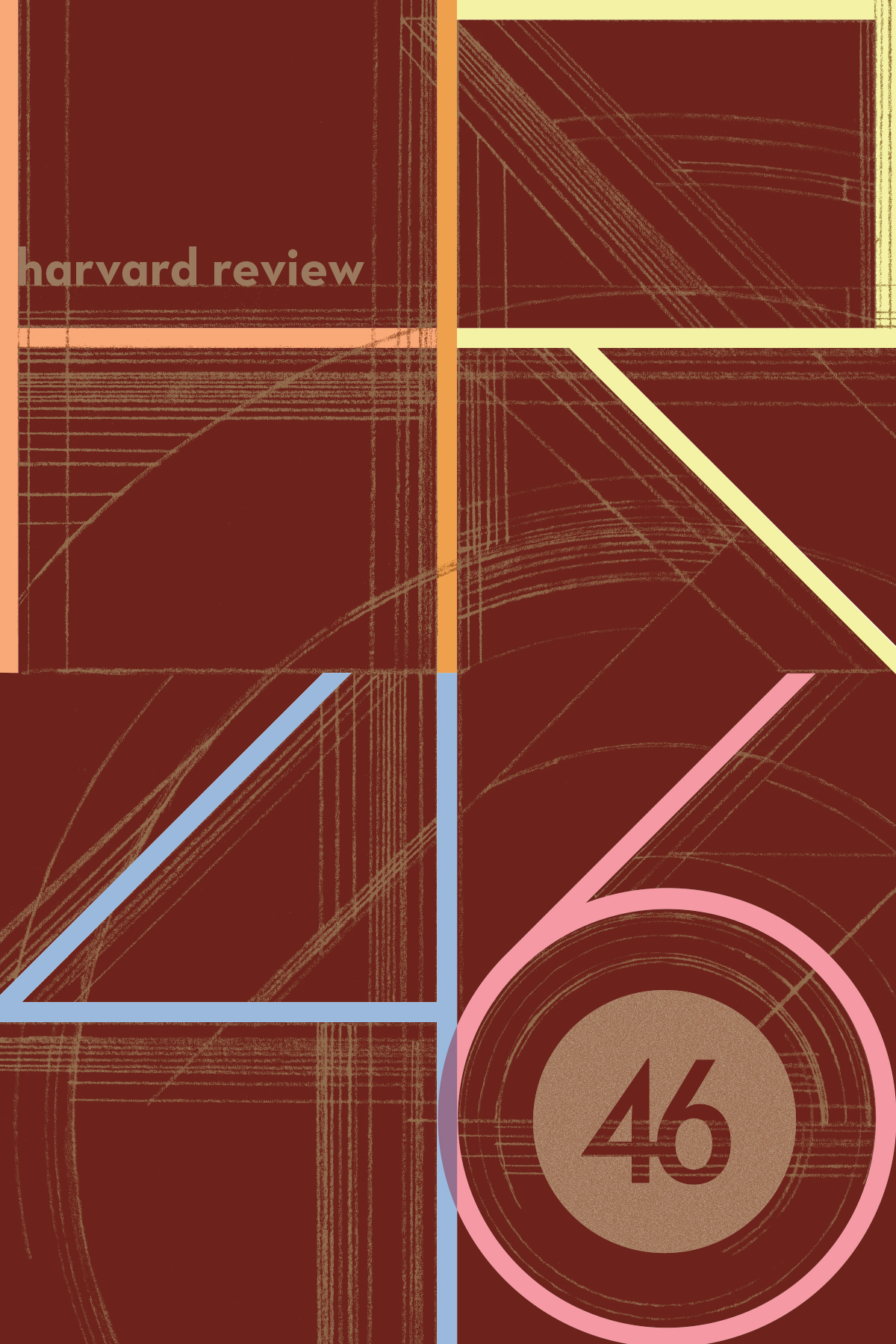HR 46 Editorial
by Christina Thompson
A year or so ago I had a student in my summer school class who wrote an essay about the fish collection at the Museum of Comparative Zoology at Harvard. I thought I knew the museum fairly well, but I had never heard about the fish archive, which was described in a way that made it seem like a secret treasure trove of slimy, fascinating things. I happened to mention this essay to another teacher at Harvard, who told me that he, too, had had a student who had written an essay that made use of the same space. It seemed too fantastic a coincidence to ignore, and so I began this issue with the work of two talented young writers, Nandhini Sundaresan and Hannah Hindley, and with the idea of ichthyology.
The careful reader will find that the issue’s fish theme runs deep, encompassing not just essays, but poetry and art. But there is also another leitmotif which emerged as spontaneously as the fish, and that is the subject of psychoanalysis—and not just any old analysis, but that of teenagers. Karen E. Bender and Eli Mandel’s essays could not be more different in tone and style, or, indeed, perspective: the one, a long look back over an experience that has been thoroughly processed, the other, a short, sharp enquiry into something so recent that its meaning is only just beginning to emerge. And yet they have in common an encounter which, outside of certain regional and cultural subgroups, is not really very common at all.
It’s always fun for us to present the work of very young writers (Mandel is a recent college graduate, Sundaresan is scheduled to graduate this year); but it’s also fun to experiment with form. Over the years, we have occasionally published very long short stories; Katherine Vaz’s wonderful “Lisbon Story” from HR 30 springs to mind, as does Alan Heathcock’s “The Staying Freight” from HR 31. But not since my days at Meanjin have I published what could fairly be called a novella. In this issue we have such a work, a story of nearly 23,000 words by Ann Pancake called “In Such Light”. A tale of small town melancholy and dubious summer romance set in West Virginia in the 1980s, it follows the fate of a popcorn girl at the local movie theater.
A novella takes up a lot of space, but there are still a surprising number of things in these pages: poems about capitalism and the Celtics, an essay on tenors and soccer, a story about identity theft. We are both sad and happy to include work by the late Jonathan Imber, whose gifts are so startlingly evident even in the very last paintings he made, as well as images of some installations by the wonderfully innovative Otto Piene, who also passed away this year. One other recent death that struck home for me was that of the irrepressible poet and essayist Diann Blakely, who for years has addressed me jocularly as “Miss Wisconsin” (after a Christina Thompson who came by that title honestly in 2007). I will miss her lively correspondence and her wit.
Finally, on the subject of departures, we say farewell this month to our managing editor, Laura Healy. Laura has been a mainstay of Harvard Review for the past five years; it would be impossible to list her contributions or the number of changes that she wrought—on everything from the website (which could hardly be said to exist without her) to the database (which she rebuilt from scratch) to the submission system (which she reinvented) to the internship program (which was basically her idea). Indeed, her impact on the organization has been so thorough that one might well wonder what I do, never mind how we will manage without her. Laura is a treasure and everyone who has worked with her will miss her. Here, I simply want to thank her for all her hard work and creativity, and for being such good company all these years.
Published on February 5, 2015
First published in Harvard Review 46

